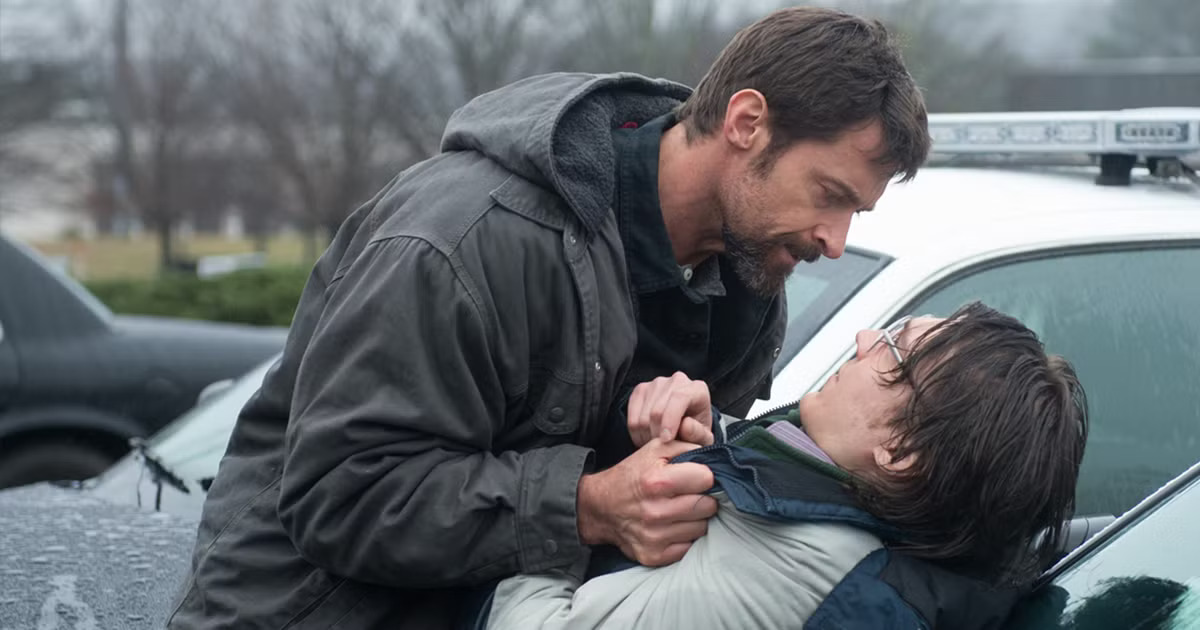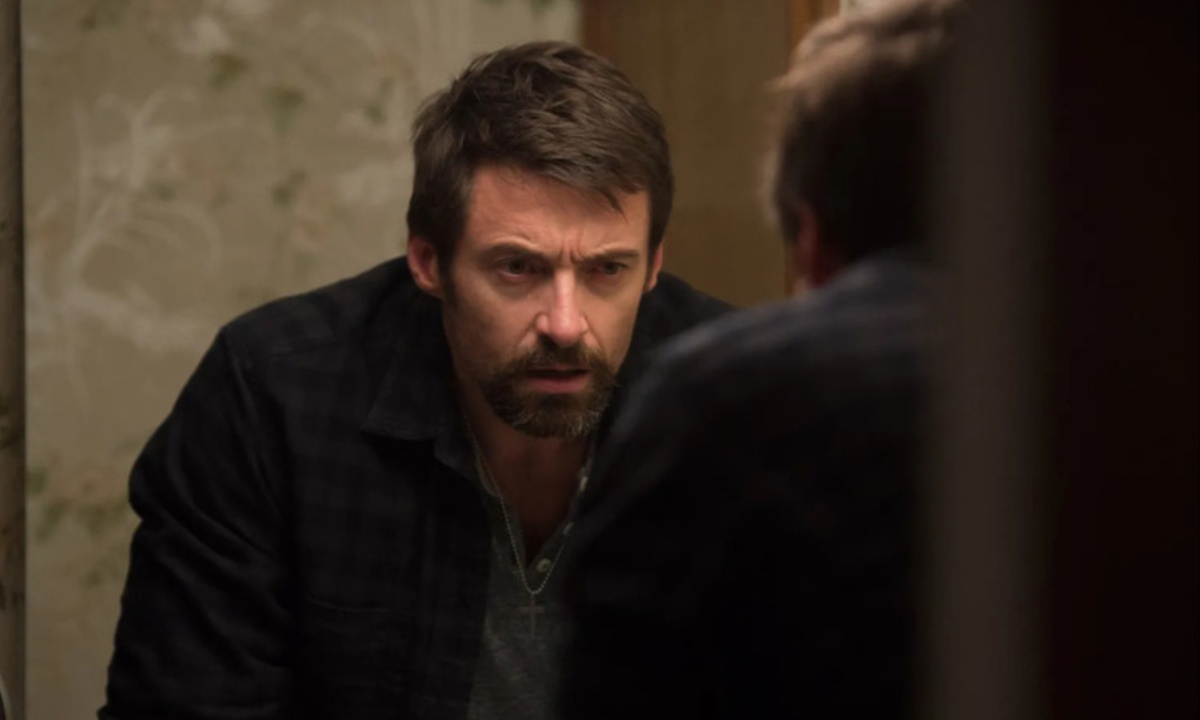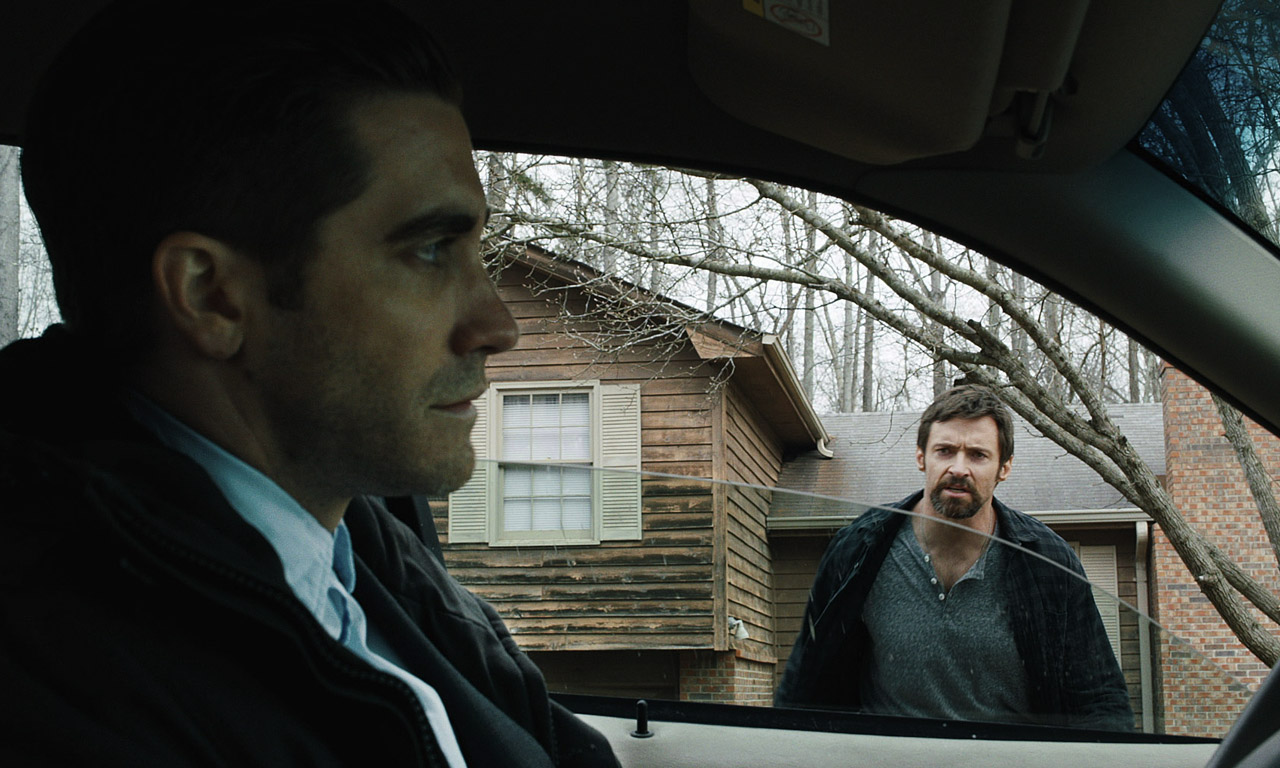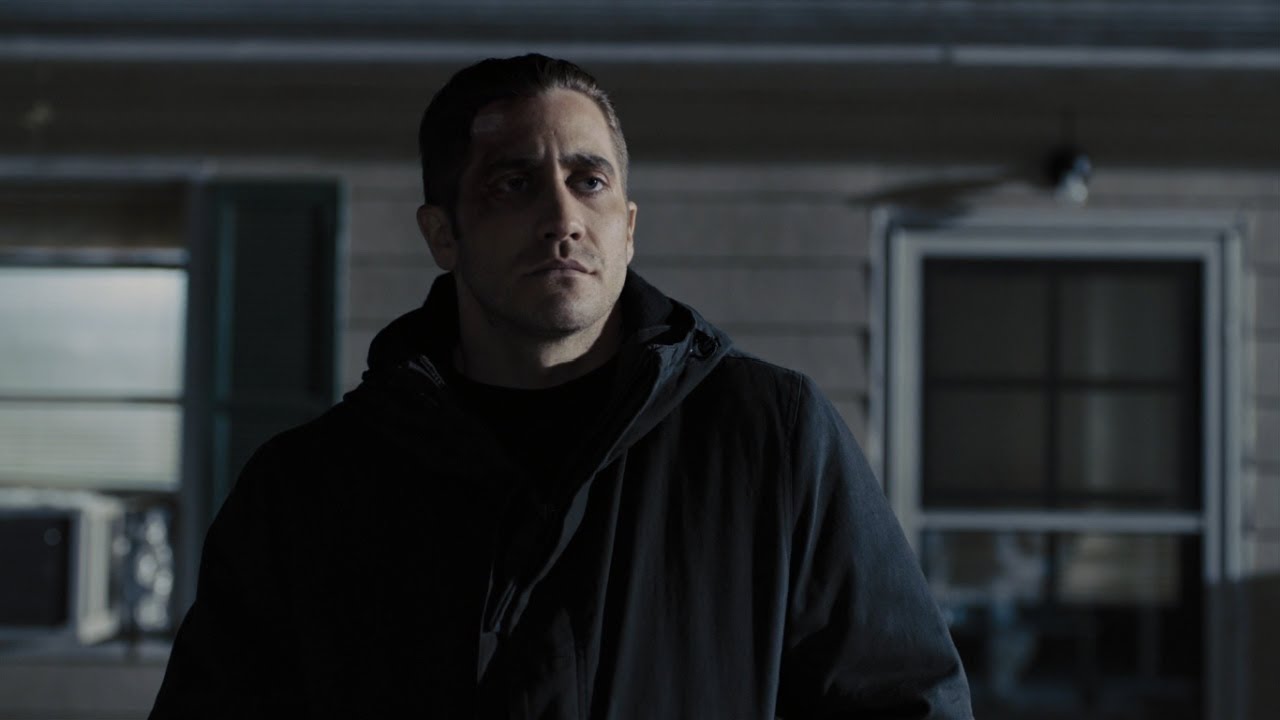The conclusion of Prisoners, directed by Denis Villeneuve, adds to the film’s intricate and dark narrative. This detective-thriller tells the disturbing story of two young girls who vanish during a Thanksgiving dinner, leading to a gripping investigation by Keller Dover (Hugh Jackman) and Detective Loki (Jake Gyllenhaal).
Both characters dive deep into their own methods of solving the case, leading to a series of complex twists that culminate in an unforgettable ending. The film challenges viewers to wrestle with moral ambiguity and leaves them with lasting questions.
Keller Dover’s journey in Prisoners is one of moral conflict and ethical compromise. As a father devastated by the disappearance of his daughter, Keller spirals into a state of desperation, resorting to kidnapping and torturing Alex Jones (Paul Dano), a man he suspects may be responsible for the crime.
His actions push the boundaries of justice, offering a deep exploration of how grief can cloud one’s moral judgment. The film starkly illustrates Keller’s emotional breakdown and the lengths he is willing to go to in order to find his daughter.
Central to the story is Alex Jones, whose involvement is at first unclear, but his role in the crime becomes clearer as the plot unfolds. Initially, Alex’s behavior and statements appear to implicate him in the kidnapping of Anna and Joy, but Prisoners reveals that Alex is not guilty.
His intellectual disability, stemming from past trauma, paints him as an unreliable character who becomes a target for Keller’s frustrations. In truth, Alex is also a victim of kidnapping, having been taken by Holly Jones (Melissa Leo), and his involvement in the crime is incidental rather than deliberate.

The Motivation Behind Holly Jones’ Kidnappings
The motivations behind Holly Jones’ actions are gradually revealed as the film progresses. After the death of her son from cancer, Holly and her husband began a disturbing practice of abducting children from Christian families. Their intent was to create a parallel crisis of faith, forcing others to experience the loss and grief they felt. Holly’s warped revenge against God leads to the kidnapping of Anna and Joy, two children from devout Christian families, continuing the tragic legacy of their family’s war on religion.
Bob Taylor is another key character who contributes to the mystery of the film. Initially, Bob is a suspect, especially after he is found with blood on his hands and makes a false confession. However, the film later reveals that Bob is a former victim of the Joneses’ kidnapping scheme.
His traumatic experience from childhood led him to imitate his captors’ behavior, including his obsession with mazes—an element tied to the Jones family. His breakdown, as he struggles with his memories of being kidnapped, ultimately causes him to confess to crimes he did not commit, demonstrating the lingering effects of trauma
Father Dunn plays a crucial role in the investigation as Detective Loki uncovers a decomposed body in the priest’s basement. The priest admits to killing a man who had confessed to abducting 16 children, ultimately leading to the revelation that the man was Mr. Jones, Holly’s husband.
This discovery connects the murder to Holly’s actions and sheds light on the larger context of the film’s religious themes. The presence of a maze necklace on Mr. Jones’ body ties the murder to Holly’s warped sense of vengeance, cementing the significance of her motives.
One of the most notable aspects of Prisoners is its ambiguous ending, particularly concerning Keller Dover’s fate. After Detective Loki rescues Anna from Holly, Keller is left trapped in a pit beneath Holly’s house. The film’s final moments depict Loki hearing a faint whistle coming from the pit, signaling Keller’s desperate attempt to get attention.
However, the film cuts to black before revealing whether Loki investigates the sound or if Keller is left to perish. This open-ended conclusion forces the audience to grapple with uncertainty and adds to the film’s grim atmosphere.
The ambiguity of Keller’s fate sparks intense debate among viewers. If Detective Loki does not respond to Keller’s whistle, it’s likely that Keller will die in the pit due to his injuries and the harsh conditions.
His broken leg and exposure to the elements make survival highly improbable. On the other hand, if Loki does find Keller, it’s possible that Keller would face legal consequences for his actions throughout the film, including the kidnapping and torture of Alex. The film leaves the outcome unresolved, creating room for multiple interpretations.

Themes of Imprisonment and Redemption
The ending of Prisoners ties together the film’s central themes of imprisonment and redemption. The title itself reflects the emotional and physical captivity experienced by the characters. Keller becomes a prisoner of his grief, losing his humanity in the pursuit of justice. Detective Loki, similarly, becomes a prisoner to the case, unable to move past the obsession with solving the mystery.
The film suggests that both men are trapped, yet there is a faint glimmer of redemption in the final moments, especially with Loki’s potential role in saving Keller. This final scene encapsulates the film’s exploration of the psychological toll of obsession and loss.
Religion is a pervasive theme throughout Prisoners, especially as it relates to the characters’ struggles with faith and belief. Holly and her husband’s abductions are driven by a twisted sense of revenge against God, stemming from the loss of their son. Meanwhile, Detective Loki is depicted as a man of faith, with his religious tattoos symbolizing his devotion to a higher cause.
Keller, too, begins as a devout Christian but loses his faith as he becomes consumed by his grief. The film contrasts these characters’ religious journeys, ultimately posing questions about the nature of belief, justice, and moral redemption.

Aaron Guzikowski’s Vision for the Ending
Screenwriter Aaron Guzikowski has shared his thoughts on the ambiguous ending, expressing his belief that it was the most fitting conclusion for the story. Although there was an alternate version where Loki finds Keller, Guzikowski preferred leaving the ending open to interpretation.
He felt that the ambiguity allowed for a more impactful and thought-provoking experience. The lack of a definitive conclusion mirrors the film’s darker themes and fits the grim tone of the story. This ending, Guzikowski argues, is more in line with the film’s exploration of the human psyche under extreme pressure.
In contrast to the final cut, an alternate ending was filmed in which Detective Loki finds Keller alive in the pit. This version was deemed more conventional and was considered for release due to concerns that audiences might find the ambiguous ending unsatisfying.
However, the filmmakers ultimately chose the unresolved conclusion, feeling that it better suited the film’s atmosphere. The alternate ending would have provided closure but likely would have undermined the darker, more complex tone that made Prisoners stand out.
The ambiguous ending of Prisoners received mixed reactions from audiences, but many viewers appreciated the tension it created. While some might have found the lack of resolution frustrating, the film’s unresolved conclusion kept audiences engaged and heightened the emotional intensity of the final scene.
The suspense in the last moments, as viewers hope that Loki will hear Keller’s whistle, added to the overall tension. The film’s ending succeeded in maintaining its dark, unpredictable tone, allowing viewers to wrestle with the mystery and its implications long after the credits roll.
Prisoners is a film that leaves a lasting impact on its viewers, largely due to its ambiguous ending. By not offering clear answers, the film deepens its exploration of moral dilemmas, trauma, and redemption. The unresolved fate of Keller Dover leaves the audience with a sense of unease, perfectly capturing the grim atmosphere of the movie. Through its open-ended conclusion, Prisoners invites viewers to engage with the story and its themes on a deeper level, ultimately providing a haunting and thought-provoking cinematic experience.



